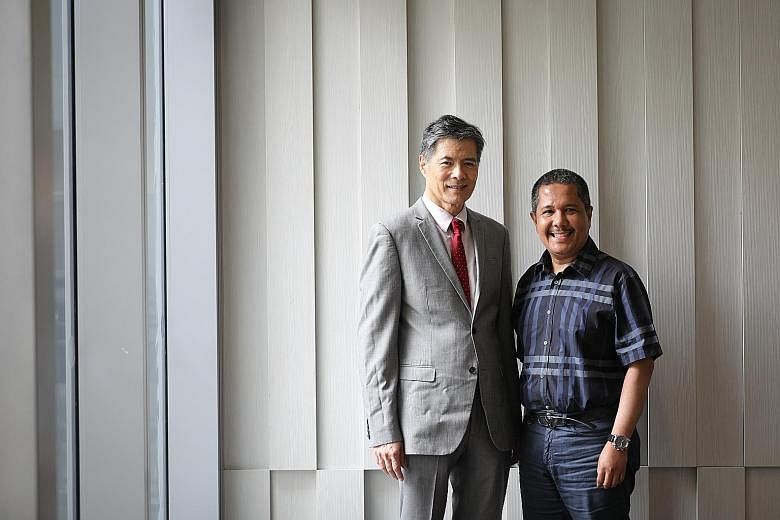A new study by researchers at the National University Hospital (NUH) is aiming to cure hepatitis B patients who have low amounts of the virus by taking them off their medications and monitoring them closely.
Professor Lim Seng Gee, a senior consultant at the NUH department of gastroenterology and hepatology who is leading the study, said stopping medication can allow the body's immune system to clear the virus on its own.
"If you are on medication for a long time, your body may not recognise the virus as foreign because it is being suppressed. When you stop treatment, the body can recognise a small flare-up and attack the virus."
But close observation is needed and not all patients can be taken off their medication safely, he said.
He added that those with more severe flare-ups will see symptoms like jaundice and liver inflammation return, which can lead to liver cirrhosis or liver cancer. They have to be put back on medication.
One of the 23 patients enrolled in the study since January, Mr Arfan Awaloeddin, 49, has already seen his viral load fall to zero.
This means he has been functionally cured of the infection since last month, but he will continue to be observed for the duration of the three-year study, said Prof Lim.
About 3.6 per cent of Singapore's population aged 18 to 79 - some 180,000 people - are carriers of hepatitis B, the most common form of the virus here. It is usually transmitted from mother to child and through infected bodily fluids.
Many do not feel unwell until the infection causes serious symptoms such as liver inflammation.
Spontaneous cures are not unheard of. Between 2001 and last year, 122 of the 2,368 hepatitis B patients seen at NUH were cured while on oral medications, Prof Lim said.
Most sufferers tend to be older as younger Singaporeans would have received the hepatitis B vaccine as children, he said.
Mr Arfan, the chief executive of the Rumah Sakit Awal Bros group of hospitals in Indonesia, said he was diagnosed with hepatitis B in 1992.
His late father also had the virus, as does his younger brother.
After receiving treatment in Indonesia and being on medication for nearly a decade, he decided to stop taking his medicine in 2001 without discussing it with his doctor as he felt well enough. He said he had been spending $200 to $300 a month on the medicine.
But about three months later, his liver function deteriorated and he had to restart his medication. "When Prof Lim suggested I stop taking my medicine, I was very scared because of my experience," said Mr Arfan, who has been receiving treatment in Singapore since 2006.
Those interested in taking part in the study can call the researchers on 6772-4447 for screening.
Only patients with viral loads below a certain level and who are relatively well will qualify for the three-year study, which aims to enrol 150 patients. Those with liver cirrhosis or cancer will not qualify.
The study is funded by a $1.5 million grant from the National Medical Research Council.


